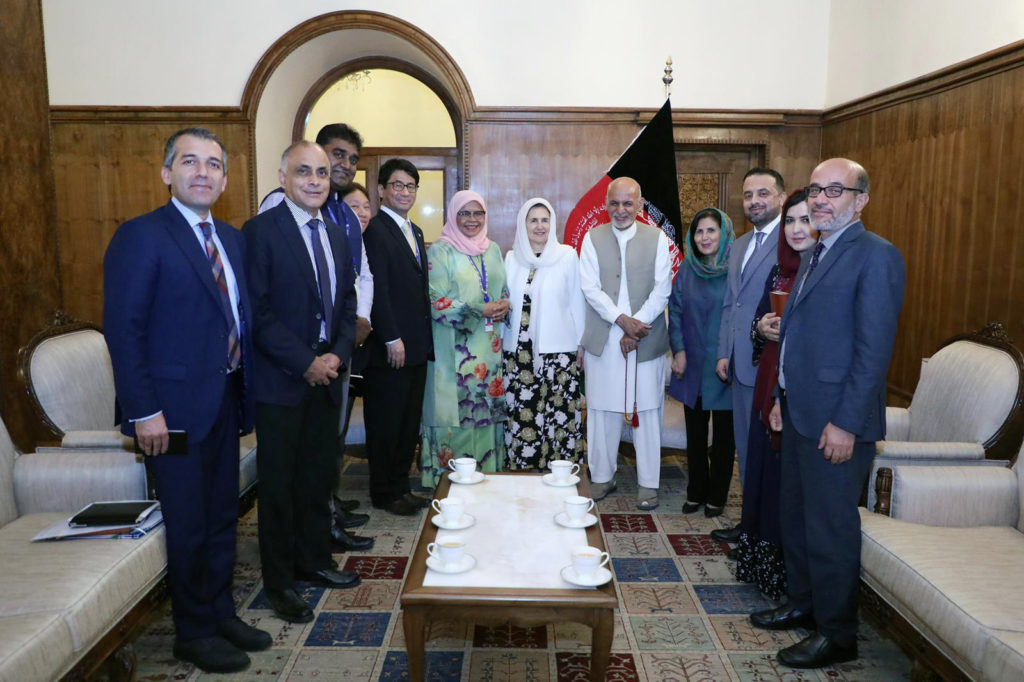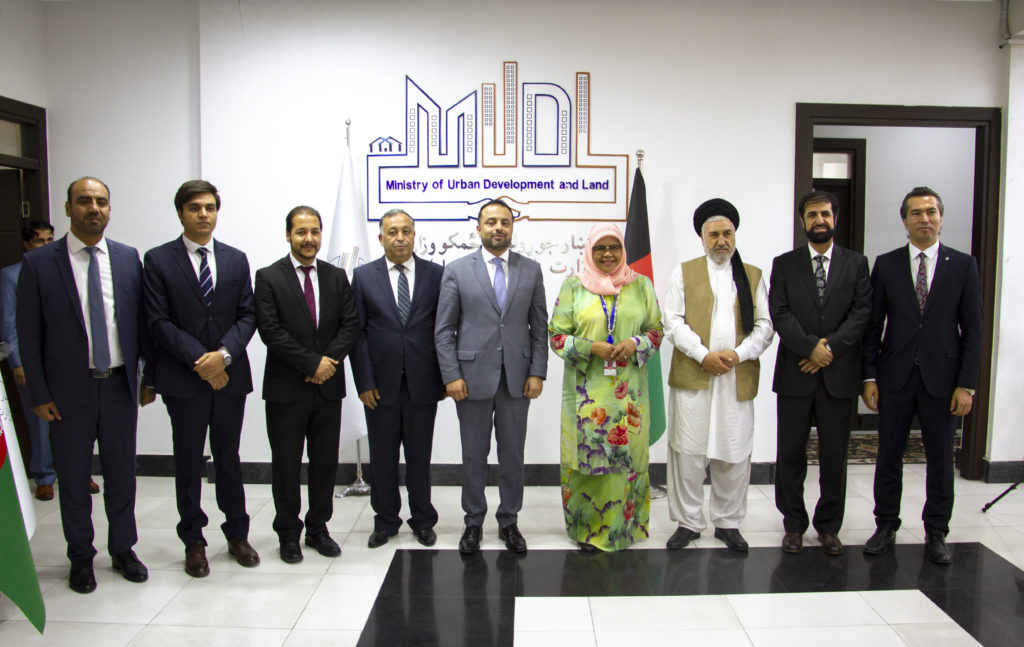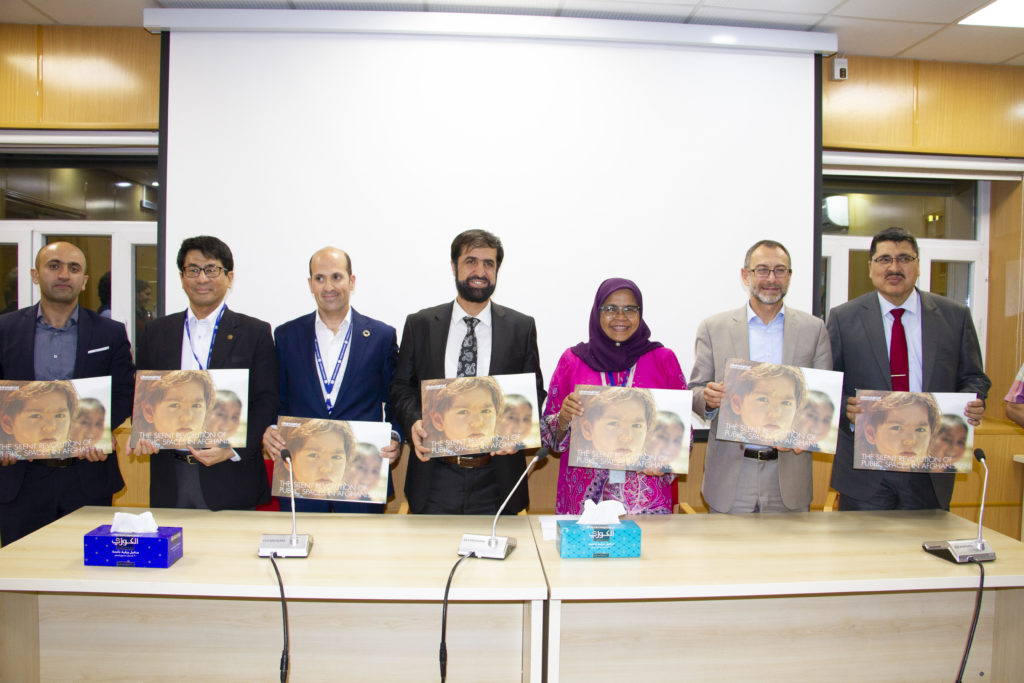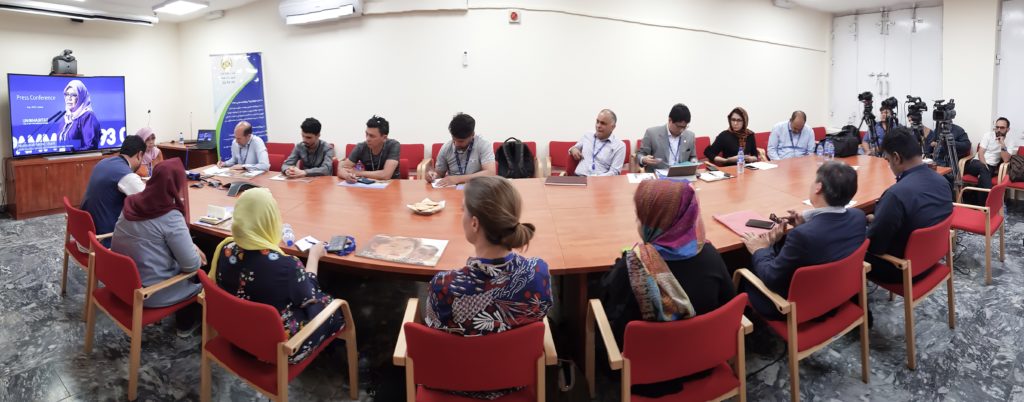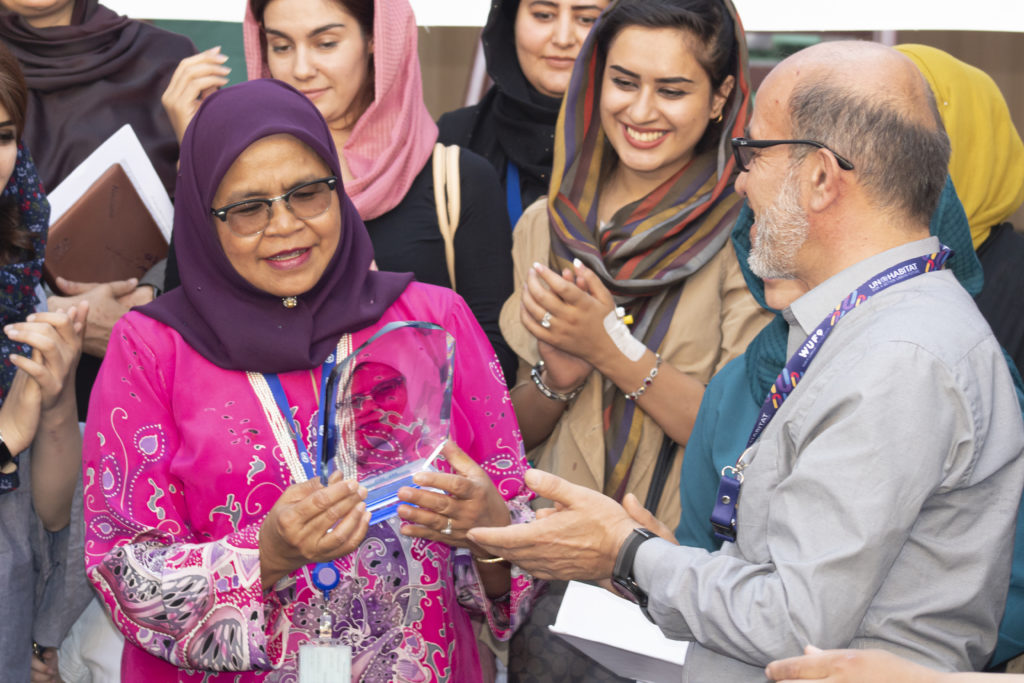Executive Director pays First Official Visit to the Islamic Republic of Afghanistan
Kabul, 22nd July 2019. The Executive Director of UN-Habitat, Under-Secretary-General Maimunah Mohd Sharif, paid a three-day visit to the Islamic Republic of Afghanistan on the occasion of the International Symposium about urban informality and upgrading.
With more than two decades of presence in Afghanistan, UN-Habitat has contributed to the physical and social reconstruction of the country through technical assistance in both rural and urban areas.
This visit, her first as Executive Director, was an important opportunity to strengthen the strategic partnership of UN-Habitat with the institutions and the people of Afghanistan.
During the visit, the Executive Director was received by H.E President Ashraf Ghani and First Lady Rula Ghani. She also met Minister of Urban Development and Land (MUDL), Jawad Peikar; Minister of Refugees and Repatriations, Hussein Alimi Balkhi; Mayor of Kabul, Ahmad Zaki Sarfaraz; and Deputy Minister of Municipalities, Abdul Baqi Popal. She also met communities and UN staff.
The Executive Director was the guest speaker at the opening of the International Symposium addressing challenges associated with informal settlements in Afghanistan.
“Afghan cities, as you know, are already accounting for more than 50% of the national GDP although only a quarter of the population is living in urban areas today. Having come from a rural village and being a beneficiary of a national land reform programme in Malaysia, I can assure you that planned urbanization can work for everyone” the Executive Director said.
She also cited the government’s reforms and the registration of informal settlements as positive examples of land management. This included the government decree on the identification and allocation of state land to internally displaced and returning refugees.
“Congratulations for these urban reforms that will bring positive social, economic, physical and environmental changes to cities and people. UN-Habitat is extremely honored to work very closely with the Ministry of Urban Development and Land, the Deputy Ministry for Municipalities, Kabul Municipality and the people of Afghanistan in the implementation of these urban reforms”, Executive Director Mohd Sharif said during her intervention in the conference.
H.E President Ashraf Ghani reiterated the central role of land reform on the development plans of the country. “Our goal is to deliver a secure property for every Afghan woman and man, and to provide formal settlements for them”, the President said during his keynote speech.
Through the City for All programme, a government led flagship initiative with strategic and technical cooperation from UN-Habitat, more 700,000 properties have been registered with the objective of distributing Occupancy Certificates for the residents of informal areas.
This programme, the largest land tenure security one in the world, confers the right to stay to millions of citizens including women, who will have the right to possess a land document for the first time. During the ceremony, H.E the President distributed occupancy certificates to residents of informal areas. He also highlighted the contribution of UN-Habitat staff in the registration of these properties.
A meeting with key actors of the urban sector, chaired by Minister of Urban Development and Land, Jawad Peikar, focused on the way forward of the strategic relation between UN-Habitat and the urban institutions of Afghanistan vis-à-vis the implementation of the current reforms and the formulation of new areas of strengthened cooperation.
On 21th July, the Executive Director inaugurated the Labe Jar Park in Kabul (Khairkhana, District 4) with the Director of Sanitation of Kabul Municipality, Mr. Behzad Ghyasi.
This is one of the 49 public spaces developed by twelve Afghan municipalities in close coordination with UN-Habitat in the framework of the Clean and Green Cities with support from European Union and United States government. The Executive Director also visited house painting activities in Kabul District 2; mural arts in Kabul city and the construction of staircases footpaths in a hilly area of Kabul informal areas where she met with members of the community.
The Executive Director delivered a key note speech about best practices addressing urban informality during the second day of the symposium highlighting that “urban informality is not just a problem of developing countries. Inequality and urban poverty are universal challenges”.
In a ceremony with Minister of Municipalities, Abdul Baqi Popal and the UN Resident Coordinator in Afghanistan, Toby Lanzer, the Executive Director launched “The Silent Revolution of Public Spaces in Afghanistan”, a photo-book showcasing the trans-formative work in public spaces in Afghan urban areas published by UN-Habitat. (Link here https://new.unhabitat.org/node/143104)
On the final day, the Executive Director held a press conference with key national press and media representatives of Afghanistan stressing the strategic role of planned urbanization in Afghanistan as a good example of the localization of SDG 11.
For more information, contact Mr Koussay Boulaich, UN-Habitat’s Head of Communications in Afghanistan

